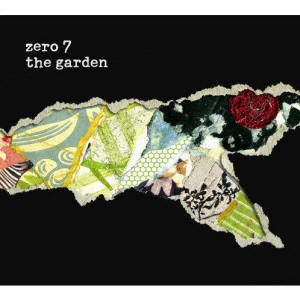Zero 7
A review of their album 'The Garden'
 Review
Snapshot:
Review
Snapshot:
The "English Air" cough up an opus of varying-quality pieces, largely destroyed
by Jos?"bouncy-balls-down-a-hill" Gonz?ez and largely rescued by Sia Furler's
soaring rhythms. Could be better, could be worse, and make a strong case for
musical euthanasia along the way.
The Cluas Verdict: 8 out of 10.
Full Review:
There are no suitable opening paragraphs for The Garden: the closest there is
probably goes like "if 21st century schizophrenia had a sound, it would probably
be not dissimilar to this album". A little like their consistent references Air,
Zero 7's latest album tries to cover all its bases - but, as it turns out, does
so with much less aplomb.
While 'schizophrenia' is undoubtedly too harsh word, it's not, ultimately, a
whole lot far off the mark - The Garden isn't just a dichotomy, but a trichotomy.
Songs are either heavily layered with the guitars and vocals of Jos?Gonz?ez,
part-written and sang by Australian R&B/jazz chanteuse Sia Furler, or largely
instrumental. The three all have separate identies, and throwing them all onto
one disc seems akin to shoving a rich, blue woolly jumper and a blood red
football shirt alongside a white wash.
Let's start with the instrumentals, which admittedly is only one full song,
although practically claims a couple more. Seeing Things is a curiously grand
instrumental tribute to video game music through the ages, beginning with
Tetris-like blips and working through Sonic The Hedgehog-style chimes. It is,
though, perhaps half a minute too long. Similarly, Your Place is the closest
thing to Air on show, with brief rare lead vocals from Zero 7 full-timer Henry
Binns, backed by flanged swelling keyboards before jazzy, cymbal-laden piano
brings the pulse. Shame, then, that the vocals disappear at the same moment, but
perhaps the song itself is destined for televisual use. Indeed, Your Place may
also have benefited from a minute's chopping.
Gonz?ez's contributions, it must be said, are rarely interesting - not a great
thing when he dominates four tracks of the twelve. The opening Futures is a
steady, acoustic-meets-space-age tinkle with typically hypnotic, if not overtly
ordinary, vocals, but when Gonz?ez returns at the midway with Left Behind, his
phlegmatism begins to rear an ugly head. The track itself pretty much a Gonz?es
solo: short with cocophonic guitar and doubled vocal. Much better suited to his
solo Veneer, the song is drastically out of place here, especially when lopped
as a mid-point. The following Today is Gonz?ez's best contribution, showing
manoeuvrability beyond nauseating plucking. Indeed, it would be bang on the
button for the closing - or opening - credits for a reasonable non-Blockbuster
movie. Somewhere it becomes clear that Gonz?ez is dull when - like all of his
own album - his singing is dubbed with more of his singing; and has strangely
more depth, and much less drone, when presented on a raw line. There's no better
example than on his last contribution, Crosses, which tries its best to inject
itself with a pulse but can never succeed - not, at least, after Gonz?es takes
all of ten seconds to make it clear that he's making a case for musical
euthanasia.
Where the album shines is on Sia Furler's contributions, beginning with the
laid-back, trumpet-augmented, Papas Fritas-esque bop of Throw It All Away. A
radio edit would make a sleeper hit of a single, just like Pageant Of The
Bizarre, The Garden's standout track - insanely memorable, momentous and other
than a strange pipe-organ link leading to contrapuntal choral greatness at the
end, would be gorgeous. Furler's ability to soar is confirmed further on the
excellence of This Fine Social Scene: a head-nodding, rhythmic song with an
epic, almost orchestral interlude, and by far the most memorable piece on show.
Waiting To Die, is an excellent finale - easily a KT Tunstall single, Furler
once again rescues momentum by singing about a glass of wine while waiting for
the apocalypse. Strange, then, that the song is perfect picnic music - a
celebration that humanity has gotten this far at least. It feels a bit like
hidden treasure but at the same time emblematic of the album itself: the album
itself waiting to die; but life all the better for the few good bits discovered
along the way.
Gav Reilly
![]() To buy a
new or (very reasonably priced) 2nd hand copy of this album on Amazon just click
here.
To buy a
new or (very reasonably priced) 2nd hand copy of this album on Amazon just click
here.
